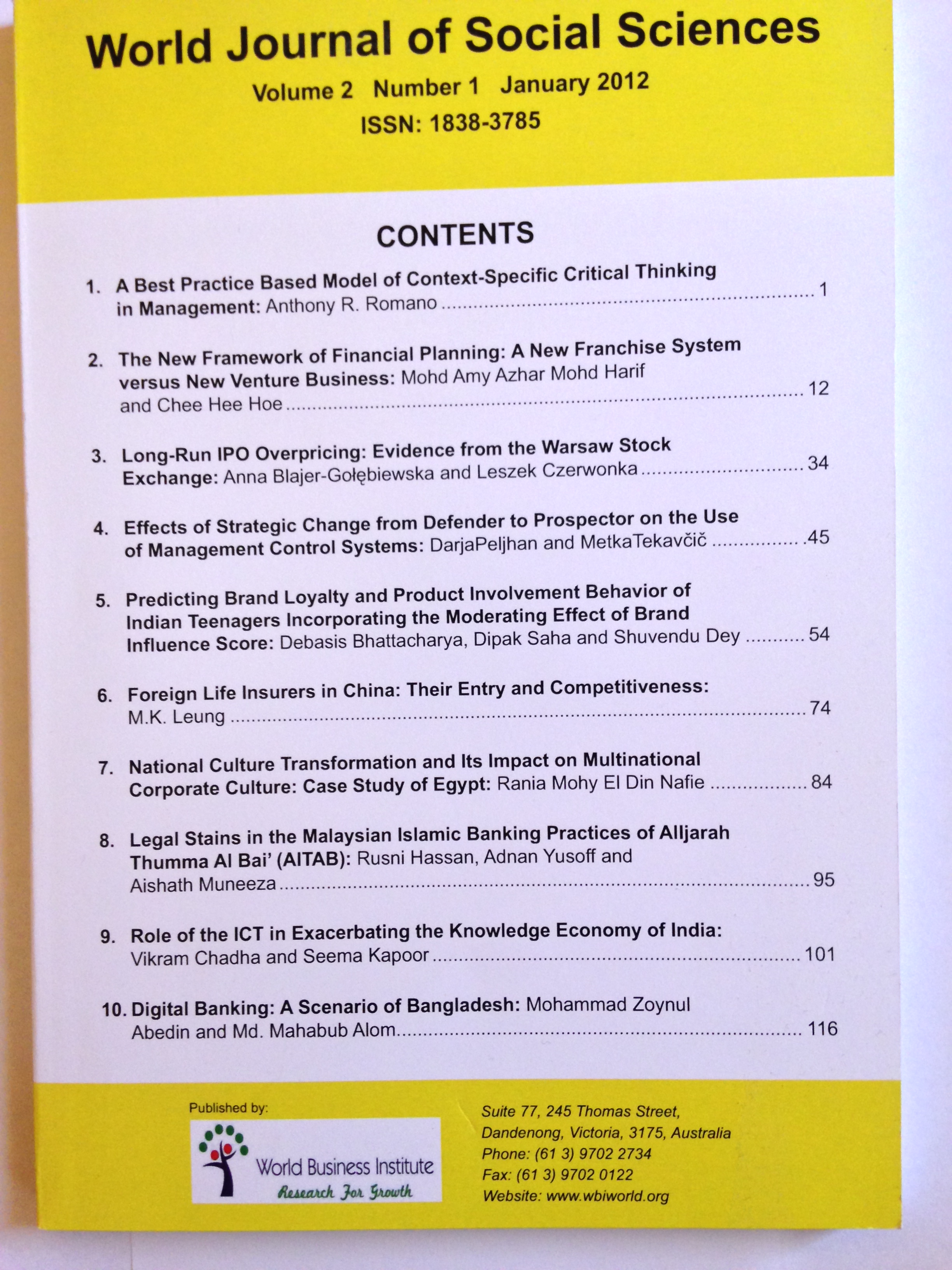July 2016 Special Issue (World Journal of Social Sciences)
Total Articles - 8

